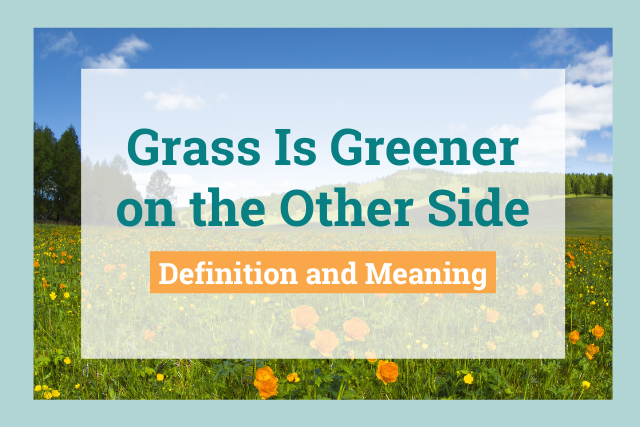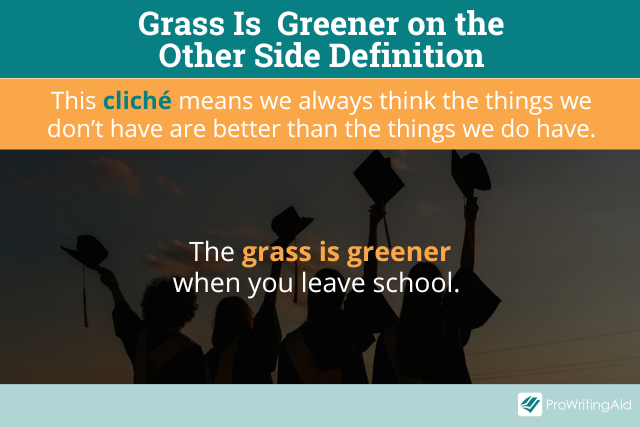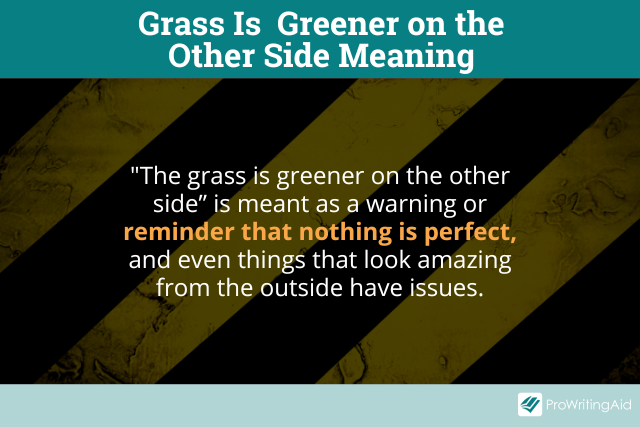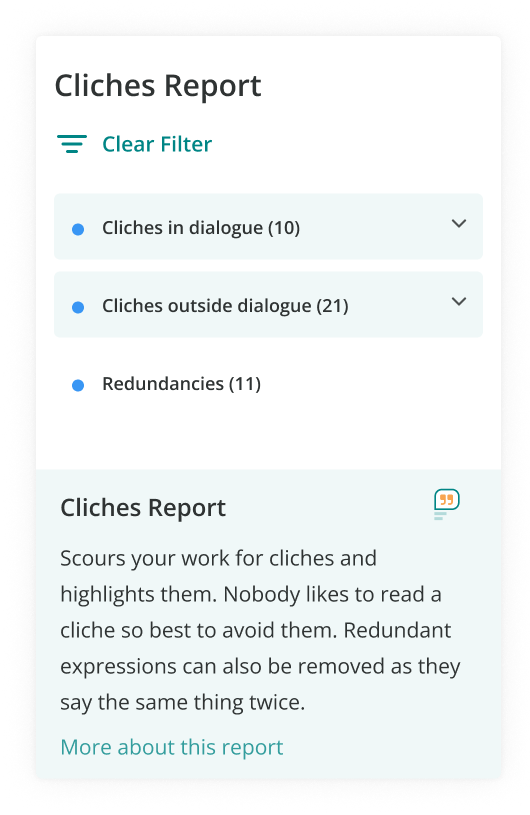
“The grass is greener on the other side” is a well-known proverb.
Today, we’re talking about what this phrase means, where it comes from, and how to use it.
“The Grass Is Greener on the Other Side” Definition
When someone says the grass is greener on the other side, they mean the things we don’t have seem better than the things we have.
In other words, we are always tempted by and envious of what other people have.

Sometimes, the old saying refers to certain situations. For example, you might think there is “greener grass” at a job that looks better than yours.
The phrase dates back to the Greek poet Ovid, who lived in the first century B.C. The original saying was, “The harvest is always richer in another man’s field.”
The proverb as we know it comes from an American folk song written by Raymond B. Egan and Richard A. Whiting in 1924. The song is called “The Grass Is Always Greener in the Other Fellow’s Yard.”
Let’s take a look at the chorus of this song:
The grass is always greener
In the other fellow’s yard.
The little row
We have to hoe,
Oh boy that’s hard.
But if we all could wear
Green glasses now,
It wouldn’t be so hard
To see how green the grass is
In our own backyard.
The song might not have stood the test of time, but the proverb from it still rings true. The phrase even exists in other languages, like Japanese!
Meaning of “The Grass Is Greener on the Other Side”

“The grass is always greener on the other side” is a proverb about envy and perception. We are so quick to see the negative in our own lot, so everything else looks better.
But is the grass really greener? The proverb is meant in a tongue-in-cheek sense. It’s a way of saying, “Is there really greener grass over there? Is it really as perfect as it seems?”
Sometimes, instead of saying “the grass is always greener,” you might hear people phrase it as a warning instead: “the grass isn’t always greener on the other side.”
No matter which way you hear the saying, know that the meaning is the same. The grass isn’t always greener. Every job has problems, every family has drama, every neighborhood has its downsides.
Examples of “The Grass Is Greener on the Other Side”
Here are a few real-world examples of the phrase “the grass is greener on the other side.”
“Someone once told me the grass is much greener on the other side/Well, I paid a visit, but it’s possible I missed it.”—Macy Gray, “I’m In Between”
“If the grass is greener on the other side of the fence, you can bet the water bill is higher.”—Debbie Macomber
“If the grass is greener somewhere else... start watering your own lawn!”—Michael Beckwith
“Alone of all the races on earth, they seem to be free from the Grass is greener on the other side of the fence syndrome, and roundly proclaim that Australia is, in fact, the other side of that fence.”—Douglas Adams
You can avoid cliches like “grass is greener” in your writing with ProWritingAid’s Cliches Report.

This report points out overused, trite phrases so you can find a fresh way to express your ideas.


